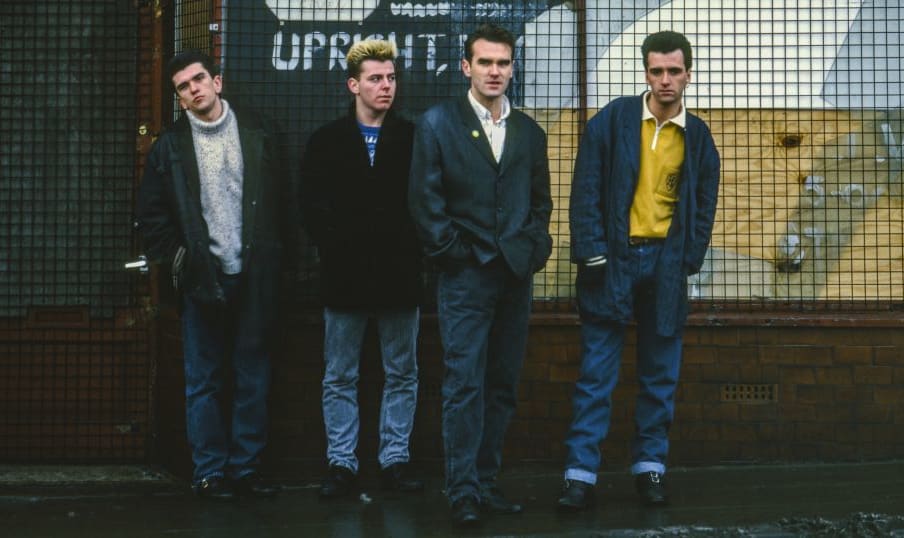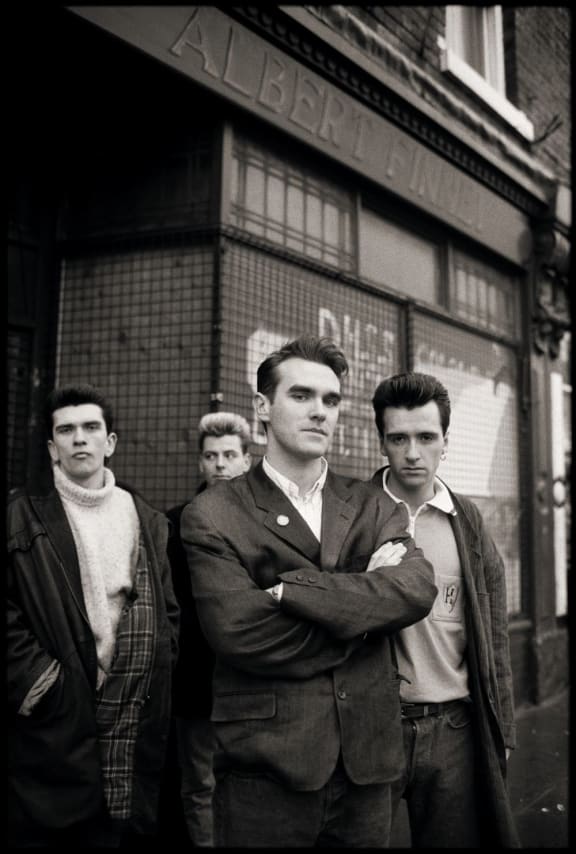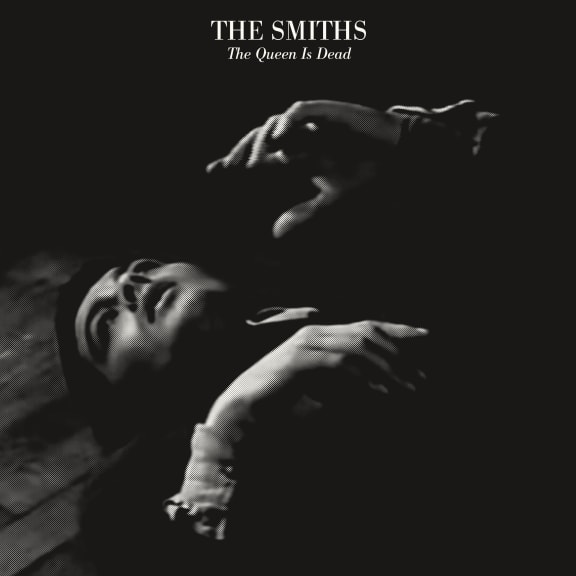
Photo: Lawrence Watson
It's difficult to put into words the impact that The Queen Is Dead had on me when it was released in June 1986.
There was no internet, obviously. Information about upcoming releases, especially from left-field alternative acts, was hard won, gleaned from the pages of local music lifeline Rip It Up or three-month-old sea-freighted copies of the British weeklies NME, Melody Maker and Sounds.
Occasionally someone would have an airfreighted copy, and it would feel like you were hearing from the future.
I had fallen hard for The Smiths after seeing the video clip (they hardly ever made them) for “This Charming Man” on Radio With Pictures, the Sunday night music show. They wore beads, polo neck sweaters, moccasins, Ray Bans and, in Morrissey’s case, wielded a bunch of gladioli.
Johnny Marr played a black and white Rickenbacker which all at once summoned up images of The Byrds, The Beatles and The Who. They were the coolest people I had ever seen. Actually, growing up in provincial New Zealand, they may just have been the only cool people I had ever seen.
When their third LP finally materialised (at Newman’s Pianos and Books, in Stafford Street), it was a beautiful object. A mysteriously dark green sleeve, with the band’s name and title in pink, and inner sleeve with that iconic Salford Lads Club photo.
Better still was the music contained therein.
The opening, title track started with Cicely Courtenidge singing 'Take Me Back To Dear Old Blighty', from the 1962 film The L-Shaped Room, before segueing into a furious feedback-drenched, wah-wah fuelled piece of music which somehow sat perfectly alongside Morrissey’s 'state of the nation' lyrical assault. – the Royal family, the Church and the pub all spinning in a dazzling Catherine wheel of language that seemed to fire off in all directions at once.

LW_SMITH_14.tif Photo: Lawrence Watson
It had jokes (the kiss off to the boss of their former record label Rough Trade in “Frankly Mr Shankly”, and the Carry On-styled romps of “Vicar In A Tutu” and “Some Girls Are Bigger Than Others”); wit and charm (the intentionally misspelled “Cemetry Gates”, “Bigmouth Strikes Again”), deep wells of adolescent angst and pathos (“I Know It’s Over”, “Never Had No One Ever”, and the seductively gloomy “There Is A Light That Never Goes Out”).
It was a near perfect record, even if its genesis had been troubled to say the least.
Managerless because Morrissey kept firing them, they had entered into talks about signing to major label EMI.After its’ release had been blocked while contractual details were resolved with Rough Trade, they wound up staging a late night raid on Jacob Studios in Farnham to liberate the master tapes.
Marr describes the album as capturing a time of madness in the group, and also of wanting to build on the success of previous album Meat Is Murder, which had gone to number one on the UK album charts.
It is musically playful and assured. The ensemble work is superb. The rhythm section really find their feet here, and Morrissey seems to be enjoying the attention that the group’s success has afforded him, despite the persecution complex - a favourite Moz lyrical trope -displayed in “The Boy With The Thorn In His Side”.
Nowadays, it regularly features alongside such iconic releases as The Beach Boys’ Pet Sounds or The Beatles’ Revolver in lists of the greatest albums ever made, and the shadow it cast over British music was long – you could say in many ways, it created the template for the ‘Britpop’ era of the 90’s, with acts like Blur, Oasis and Suede all championing The Smiths’ output as being hugely influential on their own music.
And now, all these years down the track, there is a 31st anniversary reissue edition, featuring remastered audio, demo versions, early mixes and outtakes, and a USA live show from the era (though no actual unreleased songs).

Photo: Supplied
Aside from the big deluxe The Smiths Complete reissue from 2011, there actually hasn’t been that much by way of Smiths reissues.
Just as well, as “Paint A Vulgar Picture” from their following album Strangeways, Here We Come mocked the industry’s desire to squeeze cash from old recordings. “Reissue, repackage, repackage, re-evaluate the songs, double pack with a photograph, extra track and a tacky badge...”
No tacky badge here (alas), but plenty of the rest. It has actually aged very gracefully. Only the digitally-reverbed drum sounds betray its era. The sumptuous green and pink sleeve has inexplicably been replaced by black and white (and cover star Alain Delon has, quite literally, grown a limb from the original sleeve).
And it is quite unsettling to hear early demo versions of songs you know so well, with subtle lyrical and musical differences. Some are inconsequential; others, like the absent “Oh Mother...” at the start of “I Know It’s Over”, feel like alterations to the gospel text of this most iconic of ‘80s albums.
It still sounds like what it is: the definitive statement from a great British rock band and the perfect encapsulation of the Morrissey/Marr yin and yang.
It's still every bit as urgent, thrilling and exciting now as it was back then, and no amount of revisionism, Morrissey’s recent worryingly insensitive and ill-informed proclamations, or his truly terrible novel, can rob it of its appeal.
Its message and musicality will strike a chord as long as people find enjoyment in the juxtaposition of dark humour and melancholy with music that is both wistful and ecstatic.
If you already know and love the album, it is great to hear it again with fresh ears. If you do not, you are in for a treat, and I almost envy you.
Listen to Jeremy Taylor talk to Lynn Freeman about the reissue of The Smiths' magnum opus 'The Queen Is Dead" as well as the first new music from former Pale Fountains/ Shack singer/ songwriter Michael Head in a decade, a compilation of Japanese folk and rock, the dark, and the South London rumblings of King Krule.

